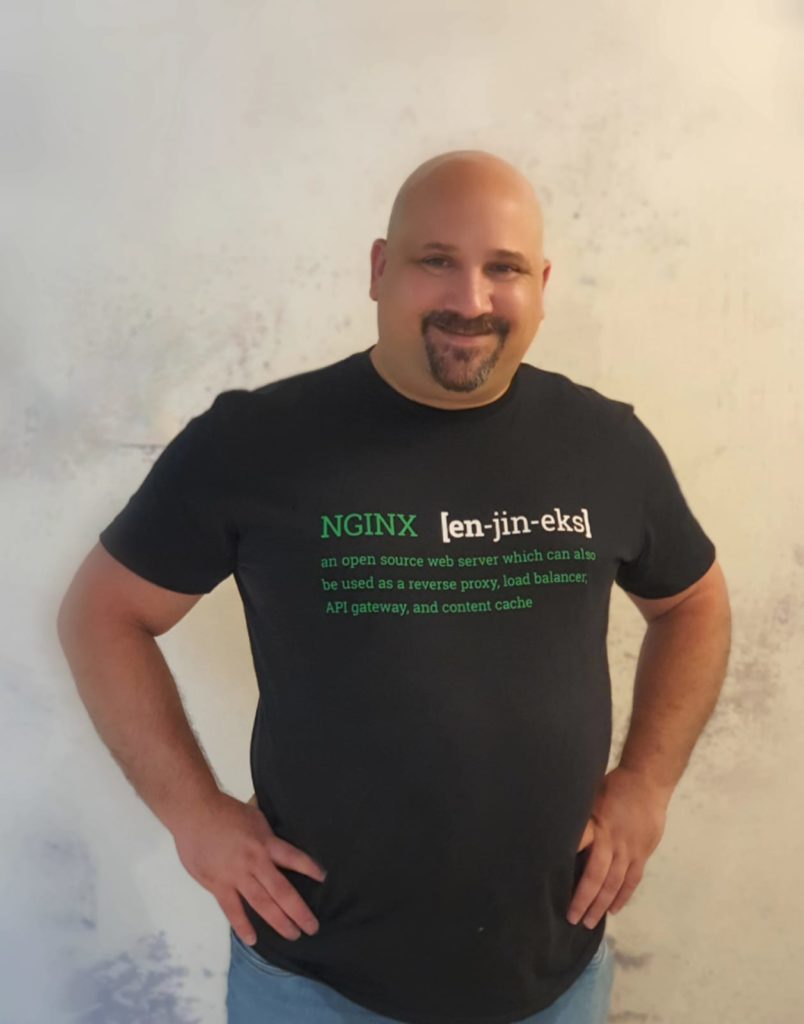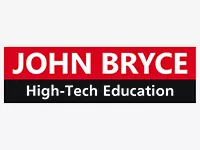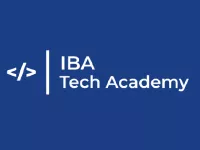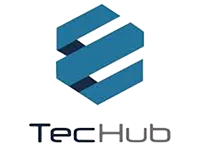DevOps Specialist
Upcoming course: 27/1, 290 Hours / 7-9 Months, Evening course
Your best path to a career transformation. This part-time development program features expert instruction, hands-on projects, and a real connection to the industry to get you hired.
DevOps is the union of people, processes, and products that enables the continuous delivery of value to end–users. DevOps aims to create a culture and environment where building, testing, and releasing software can take place rapidly, frequently, and reliably, so the company can innovate like a startup and scale like an enterprise.
Wawiwa’s DevOps Program enables graduates to understand why organizations need DevOps and to learn how to get started with DevOps. Trainees will learn the key ideas and techniques to bring development and operations together, resulting in high-quality, high-speed software development and delivery.
Bridge the Gap in Software Development & Operations
Take leadership and collaboration skills to the next level by working across teams to manage data and carry out updates for new product releases. In the end, help organizations to develop products faster and easily maintain existing deployments.

Open Doors With Industry Connections
Equip yourself to succeed in a rapidly expanding field with help from our network of DevOps experts, instructors, hiring partners, and alumni. The DevOps Specialist curriculum was created in collaboration with the industry’s leading companies to make our programs as relevant as possible to the local industry’s needs, assuring you’ll be job-ready as soon as the program ends.
Deliver a Professional Project
Throughout the program, practical skills are acquired through the completion of projects that tackle real-world problems from end to end. You’ll gain hands-on experience with code releases and deployments, work collaboratively with others to address release barriers and more, compiling a portfolio of projects designed to reinforce what you’ve learned in each unit for releasing updates efficiently.
Who Is the Program For?
System administrators, software developers, and IT/operations professionals who would like to work as DevOps Specialists in their next career step.
Top Notch Professionals
This unique program was built by a professional team made up of the leading experts in Development, with vast knowledge and experience in training, too.

Eran Lasser
CEO of Wawiwa
Eran is a tech education entrepreneur with over 20 years of experience. Eran founded and managed four IT training companies: John Bryce Training (Israel), TRIG (China), JB-IQsoft (Hungary), KocBryce (Turkey). Eran also partnered to establish DAN IT Education (Ukraine), Techub (Georgia), and more. In addition, Eran managed Mentergy, which provides e-learning and distance learning solutions. Over the years, he was responsible for the reskilling of more than 50,000 individuals now working as tech professionals.



Daniel Anderson
Chief Training Officer
Daniel is responsible for updating state-of-the-art topics in the company’s tech training programs, and for maintaining its training methodologies. Daniel was the Chief Trainer at the Israel Defense Force’s Tech Training Center and is a graduate of the IDF training process. He develops and delivers a wide range of programming courses, and is a Full-Stack Developer and Data Scientist.


Lidor Gerstel
Head of DevOps Program
Lidor is a DevOps freelancer and experienced instructor with a demonstrated history of working in the higher education industry. He has over 10 years of experience in the tech industry and is skilled in Docker, AWS, Linux System Administration, Domain Name System (DNS), and Jenkins…

Our Graduates Have Been Hired By the Best







Program Curriculum
- What is Linux?
- Operating systems types
- Linux Distro’s and Ubuntu
- Installing Ubuntu
- Installing VirtualBox
- Ubuntu partitioning
- Introduction to text editing
- Vim -Vi Improved
- Nano
- Linux Filesystems
- Manual installation
- Working with file – permissions
- Hidden files
- Managing files, copying, deleting, renaming
- Symbolic links
- Finding files
- Remote access
- Key-based authentication
- Bonus – Flask Web Framework
- Using scp for file transfer
- File transfers
- Wget
- Curl
- Scripting Vs Programming
- Scripting – Grep
- Controlling flow
- Using Xargs
- Managing software with APT
- Managing software updating
- Searching for software with APT
- Managing software – adding, removing and cleaning up
- Securing server with Fail2Ban
- Security ufw Firewall
- Disabling unneeded services
- Managing sudo permissions
- Ps command
- Viewing activity with top
- Checking disk usage – df
- Checking memory – free
- Scheduling tasks with cron
- Nginx overview
- Nginx configuring SSL
- CentOS 7 installation and administration
- Managing packages with YUM
- Using Yum to search for packages
- Using a third-party repository
- Managing background services
- Using Rsync
- Administering the Filesystem LVM
- What is DevOps?
- Why DevOps?
- Who uses DevOps – Where is it useful?
- DevOps ToolChain
- DevOps in business & enterprises
- Introduction to source control
- Introduction to Git
- Git terminology & GitHub
- Install Git on Linux
- Install Git on Windows
- Git Configure
- Configure Git repo in GitHub
- Bitbucket – introduction
- Gitlab – introduction
- Git Commit
- Git logs and add files
- Understand Git flows
- Command lines for beginners
- Shell Scripting
- Intro and basics
- If statements
- For loops
- While loops
- Terminate a script
- Cases
- Exit status
- Functions
- Variables
- Python 3
- Introduction and installation
- Basics of Python
- Operations, data types & file and exception handling
- Functions, generators and REGEX in Python
- Vagrant introduction and benefits
- Terminologies and working
- Installation and configuration
- Vagrant in action
- What is Docker?
- Installing Docker
- Working with Docker Images
- Creating containerized web applications
- Building DockerFile
- Tagging Containers
- Push to Docker Registry
- Docker Networking
- Deploy Docker Containers in Production using Docker Compose
- What is Jenkins ?
- Install and configure Apache Tomcat & Deploy Jenkins
- Install and configure Apache Maven
- Configure Jenkins & Plugins
- Configure Agents in Jenkins (Slaves)
- Jenkins Distribution Builds
- Configure environment variables in Jenkins and using parameters
- Build code, test code and review the steps in Job Console
- MultiJob execution
- Build JenkinsFile & run Jenkins Groovy Pipelines
- Execute parallels steps in Groovy Pipelines
- Invoking jobs as part of the Groovy Pipeline
- Utilize code snippet generator to build step in Pipelines
- Create a CI with Docker
- Provision Agents as Containers
- Deploy to Environments in Pipelines
- What is an Artifact ?
- Private Docker Registry
- Install and configure Jfrog Artifactory
- Install and configure Nexus OSS
- Uploading artifacts
- Static code analysis with sonar
- Viewing results in SonarQube
- Terraform – an introduction
- Infrastructure as code
- The difference of Terraform
- Install Terraform on Linux
- Install Terraform on Windows
- Create first Terraform file
- Resources
- Providers
- Variables
- Output attributes
- Interpolation expressions
- Modules
- Workspaces
- Introduction to Puppet
- Setup Puppet Master
- Puppet architecture
- Puppet resources
- Puppet Domain Specific Language
- Puppet Manifests
- Node Definitions
- Modules
- Parameters
- Templates
- Classes
- Deploy an application
- Introduction to Ansible
- Ansible inventory
- Introduction to YAML
- Ansible Playbooks
- Ansible Modules
- Ansible Variables
- Conditionals
- Loops
- Ansible roles
- Troubleshooting, testing and validation
- Introduction to K8s (Kubernetes)
- Deploying K8s
- Minikube setup
- First K8s application
- Kubectl – basics
- Scale k8s nodes
- Labels and selectors
- Health checking
- Web interface
- DNS and Service Discovery
- Volumes
- Secrets
- Usage and resource monitoring
- Auto-Scaling
- Auditing
- K8s high availability
- K8s Masters
- Packaging and deploying application with Helm
- Ingress types
- Microservices
- Canary deployments
- Blue Green deployments
- Mutual TLS
- Introduction to AWS – basics
- IAM
- AWS object storage and CDN – S3, Glacier and Cloudfront
- EC2
- Route53
- Databases on AWS
- VPC
- AWS BEANSTALK
- AWS CloudFormation Stack
- AWS Code-Deploy and Code-Pipeline
- AWS Elastic Kubernetes Services
- Introduction to Application Logs
- Understand Monitoring Concepts (Nagios,Zabbix)
- Introduction to ELK (ElasticSearch, LogStash, Kibana)
- APM ( New Relic, Datadog, Dynatrace)
- How to write your DevOps CV
- Quick rehearsal of all key Course Concepts
- Question and technical interview from real-world job interviews
FAQs
DevOps Specialists work with Software Developers, System Operators, and other production IT staff to oversee code releases and deployments. They collaborate with these IT professionals in a team environment in order to help organizations create and release regular updates to their products. Essentially, DevOps Specialists ensure that updates are released as efficiently as possible.
Yes! All graduates who have successfully completed the program will receive a DevOps Specialist certificate.
Thousands of alumni use their course certificate to demonstrate skills to potential employers, along with their LinkedIn networks. Our development programs are well-regarded by many top employers, who contribute to our curriculum and partner with us to train their own teams.
If there are no restrictions, studies take place mainly at our physical center. In case of any travel or gathering restrictions, the program moves seamlessly online – with live interactive sessions with your trainers. Some learning materials – like class recordings and topics for self-study – can be watched on-demand from anywhere.
Register your interest, take a 1-hour online assessment test, and have a talk with one of our career advisors.
This program targets system administrators, software developers, and IT/Operations professionals who would like to work as DevOps Specialists in their next career step. There are two prerequisites for this program:
- Basic knowledge of software and hardware, including Operating Systems and IT networking fundamentals
- Familiarity with the command line, some knowledge of basic Linux commands, and familiarity with Bash Scripts or other coding language
